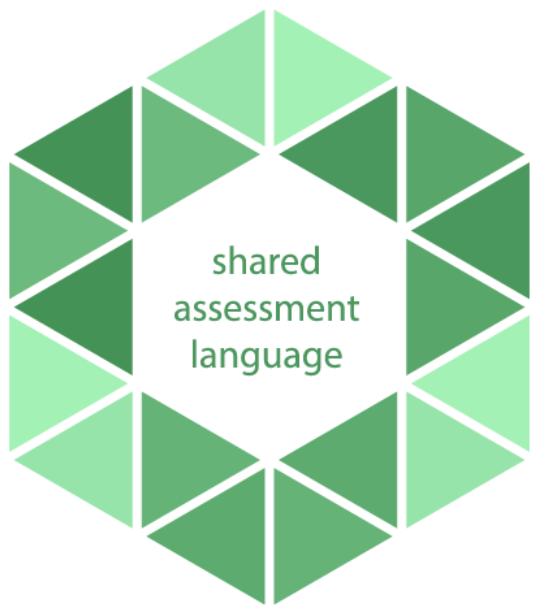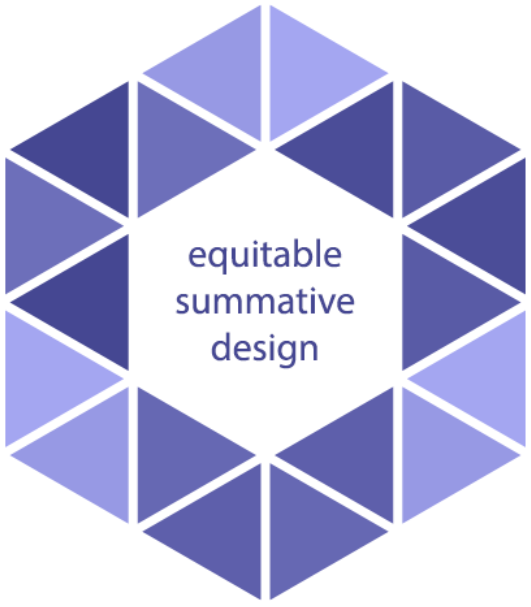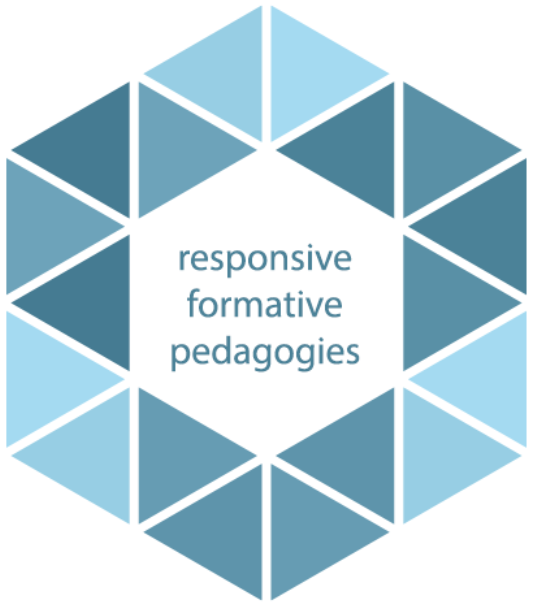School context: The first project school is a large co-educational state high school in a regional area. Students come from a diverse range of backgrounds, and study Senior English to assist their entry to university and work pathways. The focus of the research fitted with the school’s focus on deep pedagogies. The school had also been previously involved in a collaborative university research project, so they were ready for some challenging conversations and to use ideas to spark change. The teachers engaged in five inquiries as part of the action research process.

 Big purposes and a shared language of assessment. The teachers in the English department met with the university research team for a half day discussion about assessment principles and the opportunities within the new syllabus changes. The new English syllabus was being developed at this time, and teachers were feeling positive about the potential changes offered.
Big purposes and a shared language of assessment. The teachers in the English department met with the university research team for a half day discussion about assessment principles and the opportunities within the new syllabus changes. The new English syllabus was being developed at this time, and teachers were feeling positive about the potential changes offered.
I’m hoping it increases my teaching time. That’s my really big excitement about the new syllabus…more time on teaching and on learning and on enjoying the learning, so that the end product, you can see the enjoyment in the product.
Student agency was a new concept, and some of the assessment terms were unfamiliar. The opportunity for in-depth conversations supported all of the teachers in the department to deepen their understanding. Two teachers volunteered to participate in the project and were able to share their learning with others in the English department. This shared understanding has led to a rapid transmission of ideas from the project throughout the department.
 Designing curriculum plans and equitable summative assessment. During term 1 2017, the existing curriculum plans about the play ‘The Crucible” due to be taught during term 2 was redesigned by the teachers drawing on some of the big ideas from feedback loop 1. According to the existing work program, the Year 11 students had to complete two assessment tasks in the 9 weeks of term 2. The teachers were preparing for the new syllabus by emphasising the need for students to have a greater awareness of the assessment criteria.
Designing curriculum plans and equitable summative assessment. During term 1 2017, the existing curriculum plans about the play ‘The Crucible” due to be taught during term 2 was redesigned by the teachers drawing on some of the big ideas from feedback loop 1. According to the existing work program, the Year 11 students had to complete two assessment tasks in the 9 weeks of term 2. The teachers were preparing for the new syllabus by emphasising the need for students to have a greater awareness of the assessment criteria.
- School A unit overview – preparing a current Year 11 unit in readiness for a new syllabus
- Assessment tasks – short story, and Analytical Essay Assessment
- A self review validity checklist for the analytical essay and the short story.
- An argument for the validity of the design
Expert peer review of unit design and assessment. At the end of term one the research team provided email feedback on the unit tasks and the assessment tasks to the teaching team about the validity of their designs. The teachers reported that they
“loved those suggestions…I was like oh, I want more. So yeah, I did think about shifting some of my learning experiences because of those suggestions to have an orientating focus. I’m concurrently teaching a narrative and an analytical task…[The feedback] actually led me to where we looked at the learning experiences. I was like oh, how do I align up my objectives then with my learning experiences?
This type of expert peer review that currently may occur in Year 11 moderation panels, or for academic publishing, may be something that local school networks or professional associations may continue in the new system.
 Responsive formative pedagogic highlights. The teachers were actively reflecting on their practice as they taught the unit. They were invited to film short snapshots of key learning opportunities when students were critical and creative agents. Some of those pedagogic highlights included:
Responsive formative pedagogic highlights. The teachers were actively reflecting on their practice as they taught the unit. They were invited to film short snapshots of key learning opportunities when students were critical and creative agents. Some of those pedagogic highlights included:
- Becoming experts in the assessment criteria
- Looking closely at example paragraphs together, and debating about evidence.
- Self and peer assessment using coloured highlighters and also giving online feedback.
Student commentary showed how they valued the range of activities. Giving peer assessment was more highly valued than getting peer assessment as it helped students to “recognise issues in other people’s work, so I could therefore recognise it in my own; seeing what I’m really good at, what I’m missing, so I can therefore work on it”. Students also wished they could have some more one on one short conversations with teachers about feedback on their work as it would enable them to ask clarifying questions.
 Intelligent accountability through reflecting and sharing outcomes with colleagues from another school Finally, the teachers were able to reflect with colleagues from another school who had also taught the same unit. The teacher were able to share strategies, and reason together.
Intelligent accountability through reflecting and sharing outcomes with colleagues from another school Finally, the teachers were able to reflect with colleagues from another school who had also taught the same unit. The teacher were able to share strategies, and reason together.
It is a gift of speaking to another school who’s teaching it as well…[finding out] what did you do and how is it different.
Since that time, the teachers have gone on to refine their practice as a department and put some of their ideas in place in other grade levels.
The research team acknowledges and thanks the teachers from the school for their creativity and commitment. Your hard work has been inspiring and the student feedback was positive.
